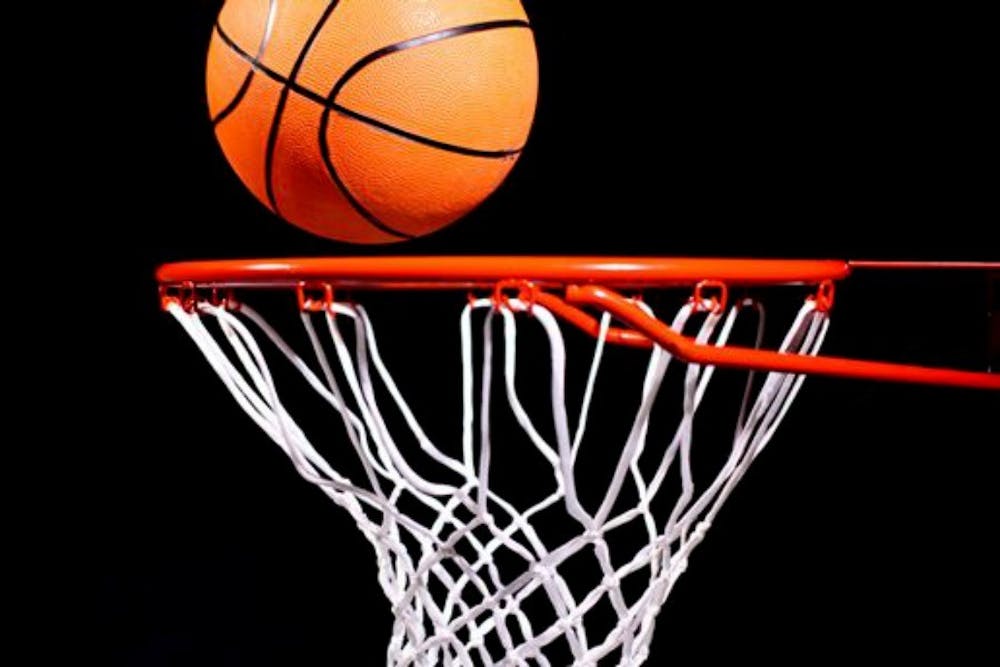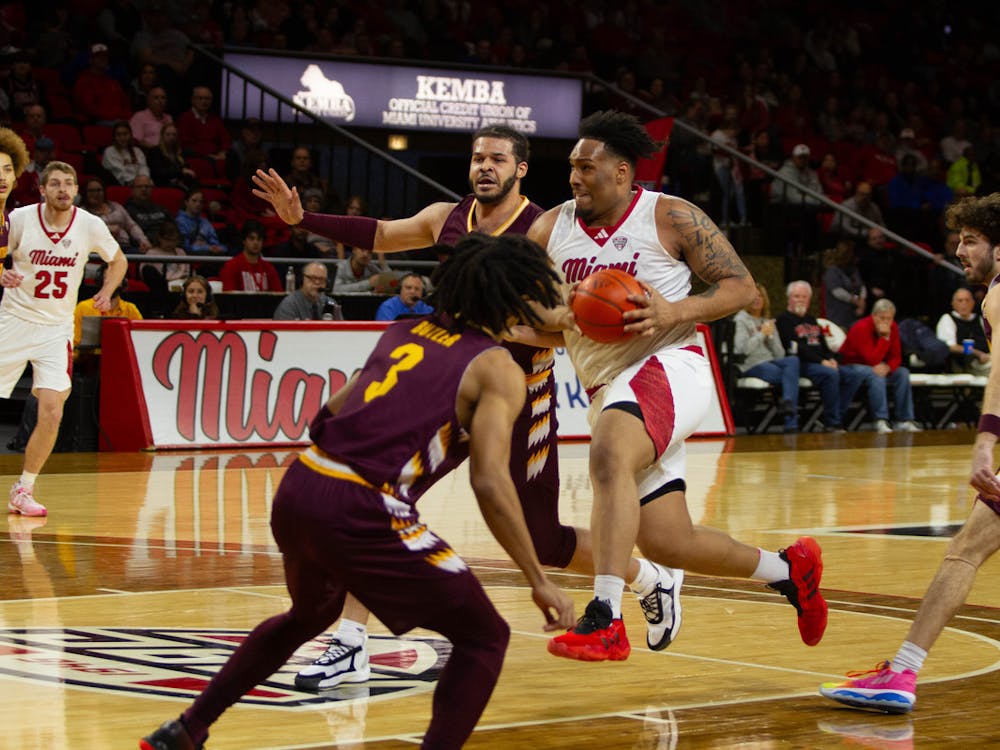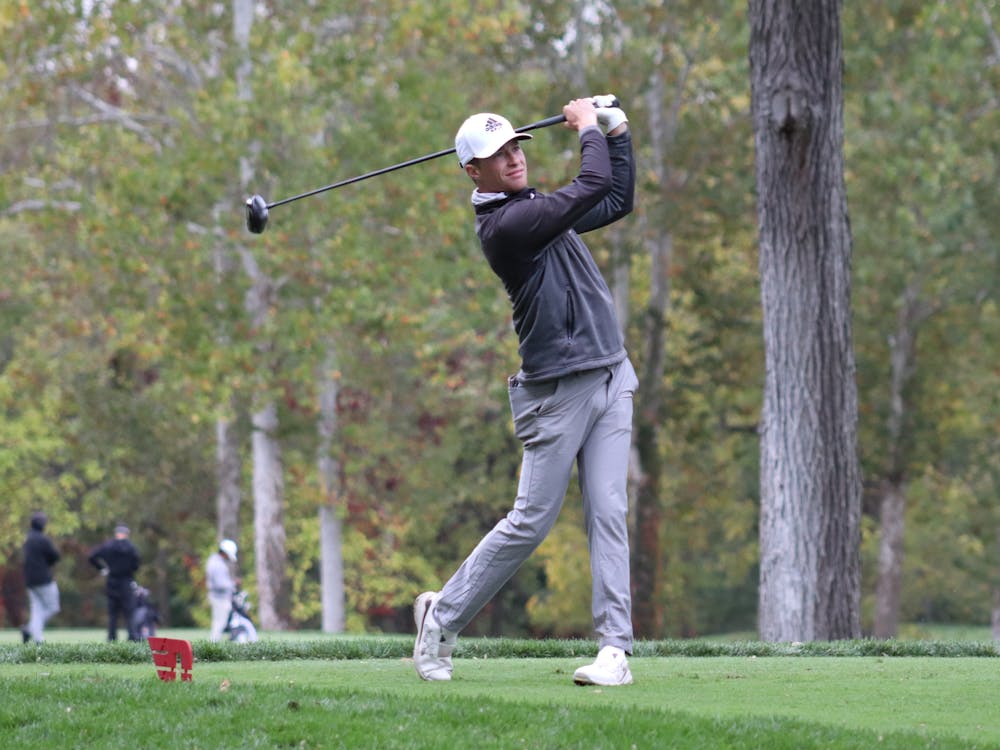All Jacked Up
By Jack Reyering, For The Miami Student
With the first three weeks of the regular season in the books and enough games played under the new NCAA rules, it's time to reflect.
From the first tip of the season, it has been abundantly clear that the game is different. But it's not different necessarily because of the rules that were changed.
Rather, stricter enforcement of the preexisting rules is what has college basketball fans throwing living room debris at their TV sets in frustration.
A major point of emphasis relayed to the officials by the rules committee is the "cleaning up of the game."
Officials have been told to blow the whistle more often on hand checks and any type of defensive activity that impedes movement of offensive players.
One way to understand the endless onslaught of whistle blowing is to think of any contact by a defensive player that draws some sort of reaction to an offensive player as a foul. Any time a defender extends his arm into an offensive player, the whistle will sound.
At this early point in the season, it's painful to watch. Players haven't adjusted to this type of officiating because they've never played this type of no-contact basketball.
The hope of the rules committee is that officiating will increase the flow of the game and make it cleaner.
Thus far, it has failed to meet that goal.
In any game you watch, you hear commentators say that once players adjust, the game goes smoother. This is not a certainty.
Enjoy what you're reading?
Signup for our newsletter
Defenders, especially big men in the post, are not getting enough time on the court to learn how to adjust. Many of them are picking up their second foul on some incidental contact before the first media time-out.
Playing in the post has always demanded tough, physical play. The object is to keep the offensive players as far away from the basket as possible. But doing so has become virtually impossible.
Seemingly every time two players fight for post-position under the basket, a foul is called on the defender. He then has to take a seat on the bench.
The rule changes were supposed to make the games quicker and more fast-paced, but the incessant whistle blowing by the refs hasn't allowed the actual rule changes to fulfill these goals.
As far as the new rules this year go, they have largely changed the game for the better.
The change in the shot clock hasn't had a drastic impact on scoring in the games. What it has done, though, is open up the floor and created diversity in playing style. Many teams are now utilizing full court pressure on inbounds. Other teams have mixed in new defensive schemes to slow down offenses.
So far, the reduction of the shot clock has not changed much in the scoring column, but with time, adjustments by either the officials or the players could result in higher scoring games.
The rule change yielding the greatest benefit is the reduction in number of time-outs from five to four.
It changes the ends of close games. Fewer stoppages in play during the final minutes has brought the games to a close more quickly than in years past.
If officiating does eventually "clean up the game," and a foul isn't called every 45 seconds, these close games could conclude even quicker.
It's still early in the year, and it is fair to say that teams will have to adjust to the officiating and rule changes.
It can be frustrating to watch now, but eventually something will give. It might be the players becoming less physical, or the officials letting more contact go.
It's also important to remember that the game is being called both ways.
Every team is suffering from foul trouble and benefitting from free throw opportunities. In then end, the better, harder working team is going to win the game.
As much as the fans love to blame the refs, it's the players and coaches who ultimately win or lose the games.




